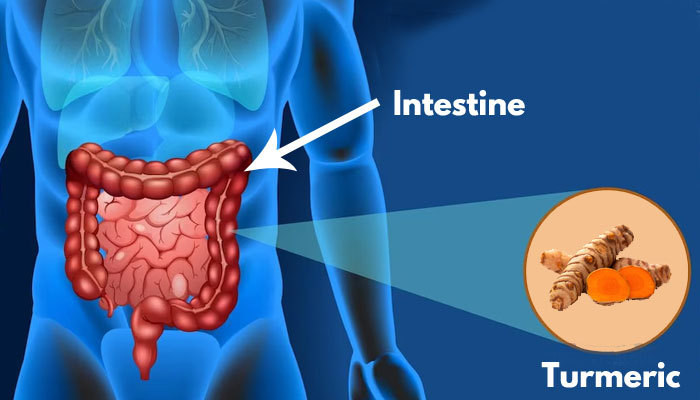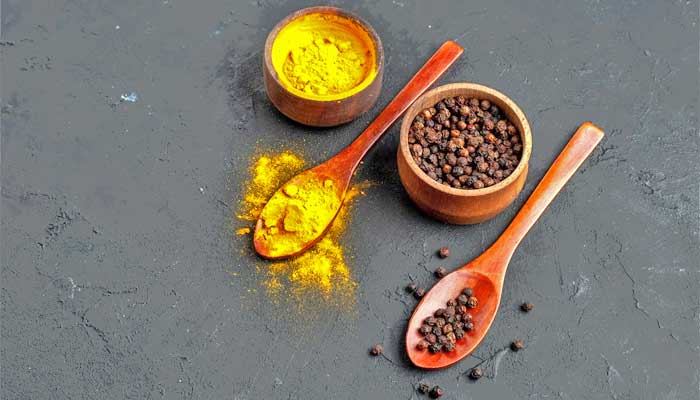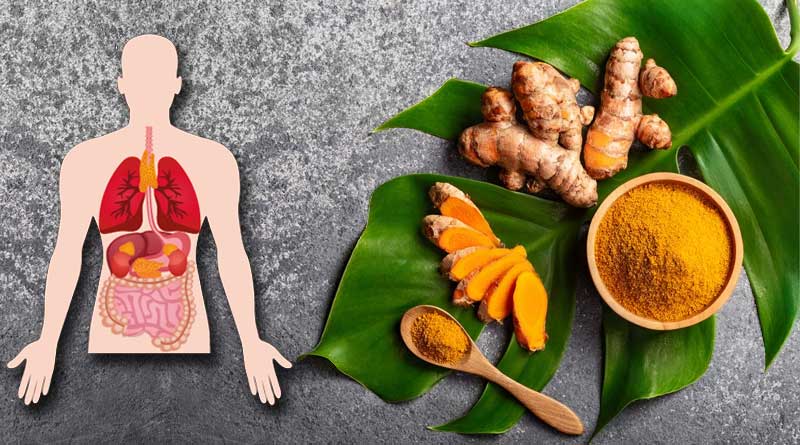Turmeric is a golden-hued spice native to India and Southeast Asia. It is called “Haldi” in Hindi and is also known as the “Golden Spice”. True to its name “Golden Spice”, Turmeric has been revered for its medicinal properties for thousands of years in South Asia. Turmeric powder or extract is central to Ayurvedic and Chinese medicines and has been researched by the West for the last few decades. While most of us understand the effects of Turmeric, we don’t know how turmeric works in our bodies. So here we are to detail it out for you.
Before we move ahead, let us answer the most common question in our minds. Are Turmeric and Ginger related? The answer is yes. They look similar for a reason. Tumeric belongs to the Ginger family (scientific name Zingiberaceae). Now, let’s get on to understand what makes Turmeric special.
What makes Turmeric so special?
At the heart of turmeric’s health benefits is a compound called curcumin. It’s the primary active ingredient in turmeric, responsible for the spice’s distinct yellow color and many of its therapeutic properties. Interestingly, Turmeric is the only plant that produces Curcumin.
Curcumin stands out as a marvel in the world of natural compounds. Its most significant distinction is its potent anti-inflammatory capabilities. It also possesses Antioxidant properties and can improve brain function and lower the risk of brain diseases. This unique compound also has the potential to battle heart diseases. Curcumin’s multifaceted benefits, define its treasured position amongst the collection of natural compounds.
How Turmeric works as an Anti-Inflammatory Drug
One of turmeric’s most acclaimed benefits is its ability to combat inflammation. Chronic inflammation is believed to play a role in many common diseases, including cancer, heart disease, and arthritis. Curcumin tackles inflammation at the molecular level, blocking enzymes and proteins that promote inflammation. This makes it comparable to some anti-inflammatory drugs but without the side effects. That’s a wonderful way to treat inflammation, isn’t it?
How does Turmeric work as an Antioxidant?
The magic compound, Curcumin is also a potent antioxidant that can neutralize harmful free radicals in the body. Free radicals arise from various metabolic processes and external factors like pollution and can damage cellular structures, DNA, and proteins. Beyond neutralizing free radicals, curcumin also boosts the body’s own antioxidant enzymes, amplifying its protective effects. So essentially, it not only acts as a medicinal cure but also prepares the body to take care of the free radicals even when you don’t consume turmeric.
Brain Function Enhancement
Recent research has highlighted curcumin’s potential in promoting brain health. It can increase levels of brain-derived neurotrophic factor (BDNF), a type of growth hormone that functions in the brain. BDNF is vital for brain function and reducing the risk of brain diseases. By boosting BDNF, curcumin could potentially delay or even reverse brain-related diseases and age-related decreases in brain function.
Heart Health and Turmeric
Curcumin improves the function of the endothelium, the lining of the blood vessels. Endothelial dysfunction is a significant driver of heart disease as it regulates blood pressure, blood clotting, and various other factors. By enhancing endothelial function, curcumin contributes to heart health.
Natural Anti-Depressant
Even as scientists continue to research Turmeric for its anti-depressant capabilities, the early results suggest that curcumin might help manage depressive disorders. Curcumin boosts serotonin and dopamine levels, which in turn makes us cheerful. Its ability to boost brain-derived neurotrophic factor (BDNF) levels, reduce inflammation, and combat oxidative stress also plays a role in its antidepressant effects.
Challenges around Curcumin
Even with so many benefits, curcumin is not free of challenges. It is a well-established fact that Curcumin isn’t absorbed easily into the bloodstream. Curcumin also has poor bioavailability, meaning that whatever little amount gets absorbed, a significant portion of it gets metabolized before it can exert its effects on the body.
How and where does Turmeric get absorbed in our body?

When we consume Turmeric, most of the curcumin is not readily absorbed in the stomach. Instead, it passes through the stomach and into the small intestine. Once curcumin enters the small intestine and is absorbed, it’s immediately subjected to the liver’s metabolic processes. The liver can transform curcumin into other metabolites, which may have different properties and bioavailability than the original compound.
However, piperine, a compound found in black pepper, can inhibit certain intestinal and liver enzymes responsible for metabolizing curcumin. This inhibition allows more curcumin to enter the bloodstream. Studies have shown that combining curcumin with piperine can increase its bioavailability by up to 2000%.
What is the right way to consume Turmeric?
a) Consume with Fat
Curcumin is lipophilic, meaning it dissolves in fat rather than water. Consuming it with fatty foods or oils can enhance its absorption. You may cook turmeric with sources of healthy fats like coconut oil, olive oil, or ghee.
b) Heat it
Cooking turmeric may increase its solubility in water, thus aiding its absorption in the gut. It’s a staple spice in curries and other warm dishes, not only for its flavor but also possibly for its enhanced availability.
c) With Milk
A popular traditional drink, golden milk (or turmeric latte) combines turmeric with warm milk and other spices like black pepper and ginger. The fats in the milk can aid in curcumin’s absorption.
d) With Black Pepper

After you have ensured good absorption, it is important to make sure that Curcumin reaches your bloodstream. Black pepper contains piperine, a natural compound that can enhance the absorption of curcumin. Studies have shown that even a small amount of piperine can increase curcumin absorption by up to 2000%. So, when using turmeric in cooking or having it with milk, add a pinch of black pepper.
e) Avoid having Turmeric empty stomach
As with many supplements and spices, it’s often recommended to consume turmeric with food to avoid any potential stomach upset.
You can consume Turmeric in many forms. Fresh turmeric can be juiced, added to smoothies, or grated into dishes. Powdered turmeric is more concentrated and can be more easily added to various dishes, especially curries.
Once absorbed and past the liver’s processing, curcumin can circulate throughout the body. It’s found in various tissues, including the brain, albeit in small concentrations. Its presence in the brain is of interest given its potential neuroprotective properties. For more such posts please visit our Health & Fitness section.




